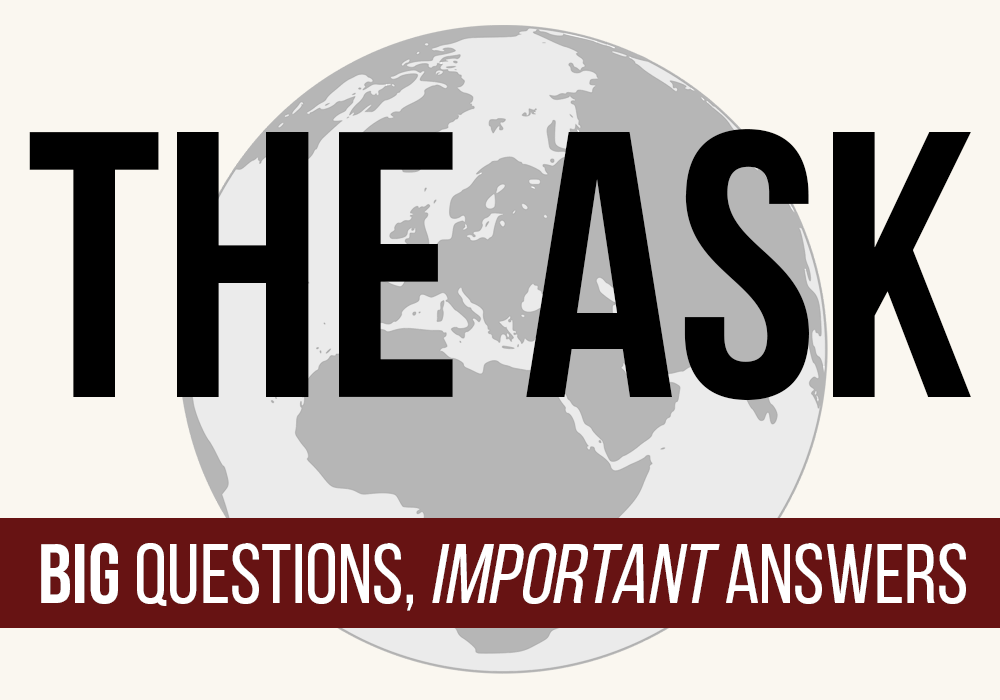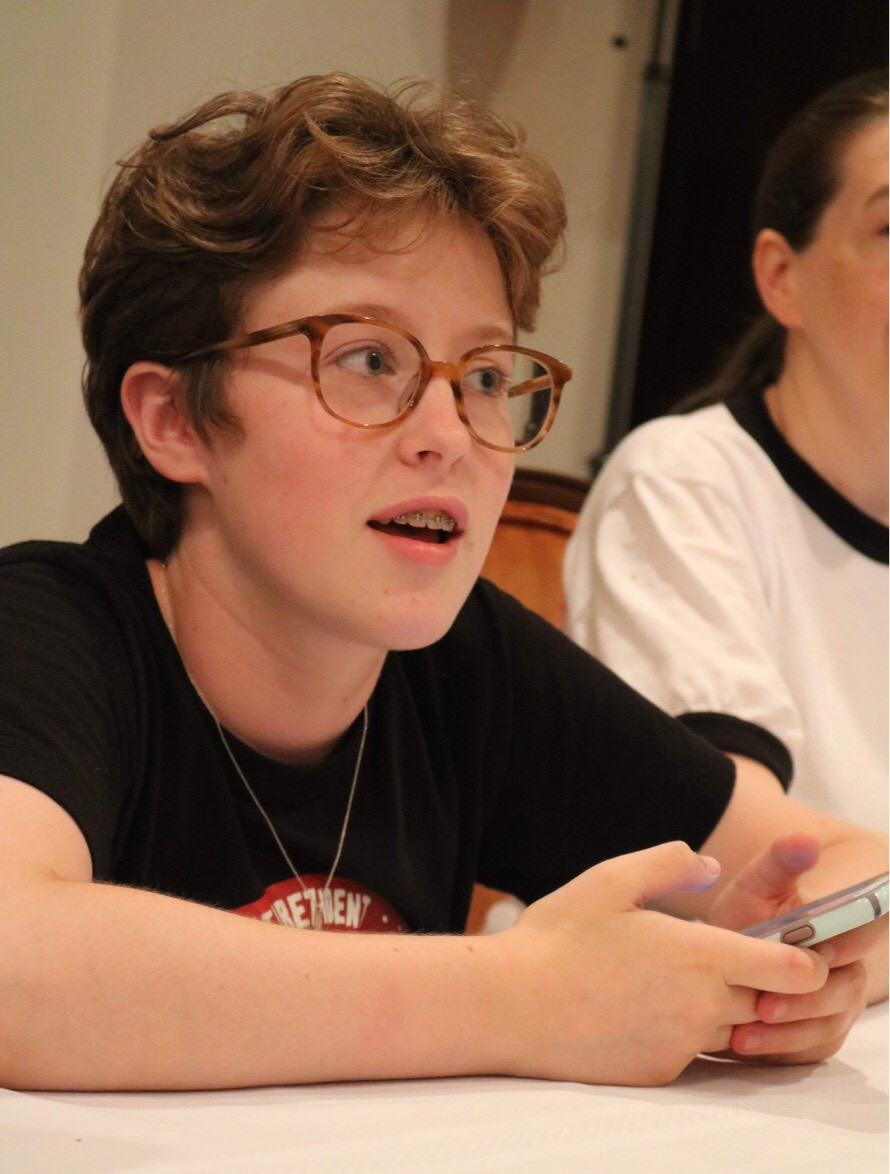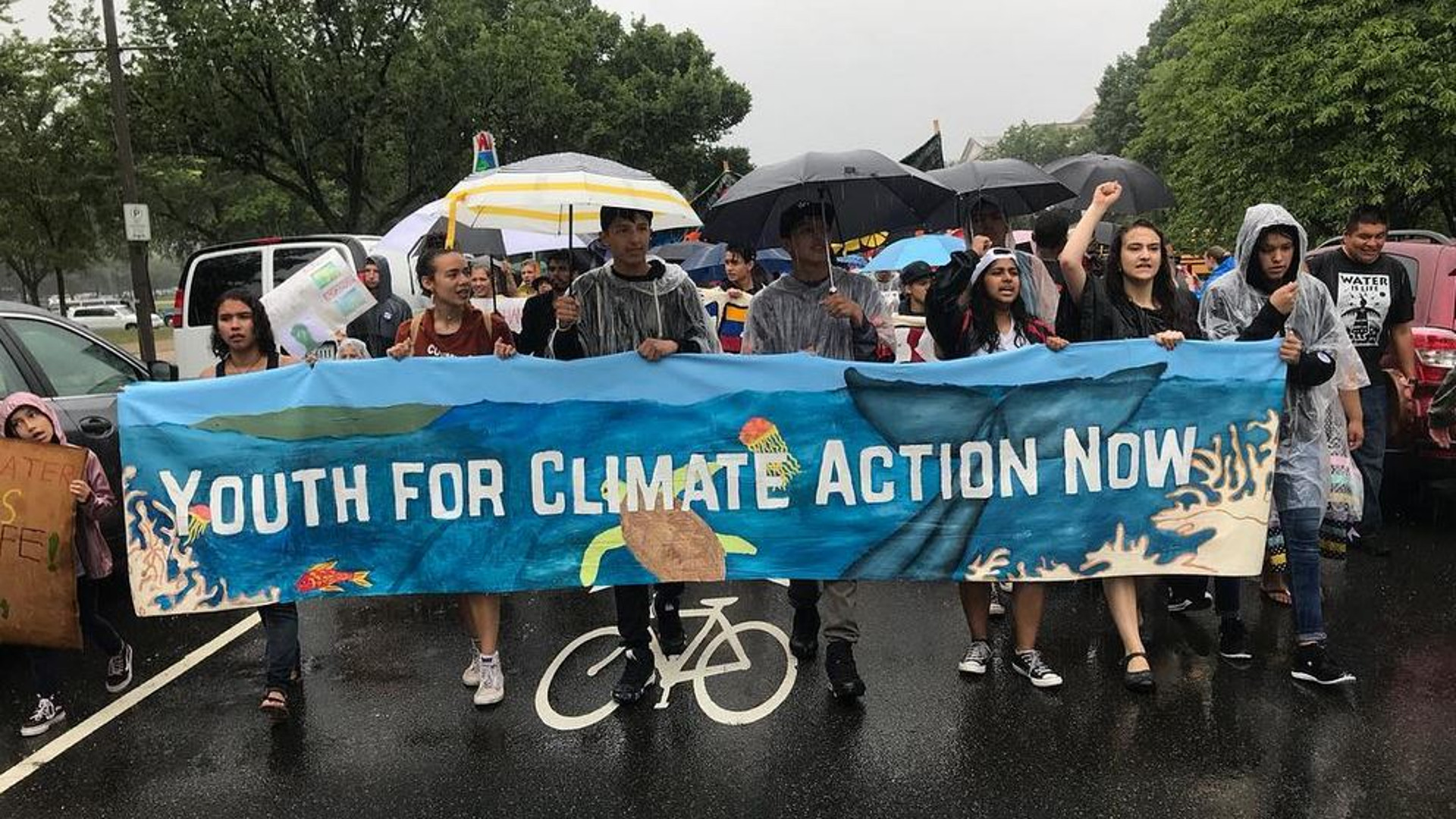Let’s be honest: Sometimes the youths of this country put everyone else to shame.
 On a rainy day this past July, hundreds of teenagers took to the National Mall in Washington, D.C., to demand action on climate change. The Youth Climate March, organized by the teen-led activist group Zero Hour, set out to urge our elected officials to enact science-based policies to confront climate change and related issues.
On a rainy day this past July, hundreds of teenagers took to the National Mall in Washington, D.C., to demand action on climate change. The Youth Climate March, organized by the teen-led activist group Zero Hour, set out to urge our elected officials to enact science-based policies to confront climate change and related issues.
That was just the warmup, though. Last month Zero Hour went global, pairing with 350.org for Rise for Climate, a series of worldwide events with tens of thousands of protestors at convening at Capitol Hill and legislatures on six continents.
What have the Zero Hour organizers learned from their first events, and what do they hope to accomplish? For answers, we turned to high-school junior and Zero Hour press director Ellery Grimm, who spent this past summer organizing the logistics of the Youth Climate March.
How do you feel now that the first Zero Hour march and the big Rise for Climate events are behind you? Exhausted? Energized?

I think I can speak for everyone by saying that we are still extremely exhausted. It takes a lot of energy to build a movement like that, especially recruiting people. I am feeling a mix of the two. I’m excited for what’s coming next, I’m energized and ready to make decisions about our next campaign, but I’m exhausted because it’s so much work.
It’s not just a job. I have school, I have a social life. I have chores and responsibilities at home. It’s Zero Hour and then it’s everything else that I’m responsible for in my daily life. This isn’t just a job for me, this is everything.
What’s your biggest takeaway from these first events? Are politicians or the heads of corporations listening?
You can never really tell when politicians are listening because it’s their job to pretend like they’re listening. It’s their job to make you think that they’re considering everything that you tell them, that everything that you say is important to them. I hope that they have at least heard what we are saying. I know that after the lobby day at least their staff knows who we are, and saw our faces and heard our voices.
The other day I was talking to Senator Heinrich at a League of Conservation Voters event. He said that he knew us, that he’d heard of us. That meant the world to me and Jamie [Margolin, the founder of Zero Hour]. I don’t have words for it. I looked him in the eye and I knew that he had genuinely heard of us and that this wasn’t just a tactic. I was so grateful that we had recognized by someone with so much influence in our government.
Zero Hour advocates for common-sense climate legislation. What does that look like to you?
The term “common sense” is tough. Not everyone knows what you’re talking about. In the case of common-sense climate legislation, however, it really is what just about anyone might think it is. All we want is what makes sense. All we want is effective change. All we want for the people of this world is protection and safety. That’s all anyone wants. That’s what makes it common sense, because everyone at least wants a good life for themselves.
Where you do see the most opportunity for progress now? Do you see any barriers to success?
I see the most opportunity in direct action. I see the most opportunity in encouraging food sovereignty in underprivileged neighborhoods. I see the most opportunity in educating upper middle-class white people that don’t see the issue in climate change, that don’t believe in it.
That education is the most important. People living in poverty know that they’re living next to landfills, they know that they’re living next to water that is disgusting, that is filled with oil and feces and trash. They know that, they’re aware that there is something wrong with their community and something wrong on this Earth. The people that don’t see that every day — the people that don’t interact with people that see that every day — educating them is the most important. Those people need to know what’s happening, need to feel it. They can’t just intellectually recognize that carbon levels are rising and the ice caps are melting. They have to feel the harm that it’s causing to the people that live on islands in the middle of the Pacific Ocean. They have to feel the pain of the people that are the most susceptible to climate change. They have to understand the plight of the frontline communities or our efforts will get nowhere.
What lesson would you share for other teens or youths who want to follow in all of your footsteps?
One message that I’d like to share with other youth, especially those that aren’t active yet, is that there’s no penalty for reaching out. There’s no penalty for saying: “I want to get involved.” Talk to your friends and organize an event, anything that involves something that you’re passionate about. There is no negative outcome.
Going to a protest and posting a picture of yourself is not change. It’s empowering that you’re part of a movement, but consider what that movement is doing. Consider what more you could be doing. You could be donating — if you don’t have that money you could be collecting money to donate. Ask yourself what time you can spare for people that can’t spare the time. Those people that live on the streets, those people that live paycheck to paycheck — they make time to survive. You should make time to make sure that they can survive as well. Is there a local community shelter that you could volunteer at? Could you start making packets with healthy but non-perishable foods for people that can’t buy meals?
There’s so much that you can do when you just take a moment and look around. See the things that are wrong, see the things that you don’t agree with in this world. You can change those things, I guarantee it.
Previously in The Revelator:
Plastic Pollution Is a Problem — These Kids Are Working for a Solution


